Top 5 Foundational Books on Tarot
By Psyche | March 24, 2008 | Print This Post | E-mail This Post | 5 Comments
There are some books that are required reading for the serious student, and this list represents my top five foundational books on tarot – books that will provide a solid historical, symbolic and esoteric foundation for any student.
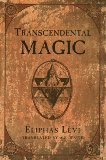
1. Dogme et rituel de la haute magie
(available in English as Transcendental Magic
), by Éliphas Lévi (Alphonse-Louis Constant)
First published in 1855 as Dogme et rituel de la haute magie, it became a foundational text for the French occult revival. It was translated into English by Arthur Edward Waite in 1896 as Transcendental Magic, its Doctrine and Ritual and gained wider recognition among English-speaking occultists on both sides of the Atlantic.
Dogma et rituel became the first occult text to weave elemental, alchemical, astrological and planetary theory with kabbalah, the tarot and ceremonial magick, synthesizing the first wholly integrated system of magick. It served and continues to serve as the basis for much symbolism found in the Hermetic Order of the Golden Dawn, the Ordo Templi Orientis, and various contemporary mystery schools. While lacking in historical accuracy, and allowing for many liberties taken with its symbolic integrity, Dogma et rituel remains an important historical work for this reason.
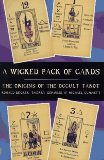
2. A Wicked Pack of Cards: The Origins of the Occult Tarot
, by Ronald Decker, Thierry Depaulis & Michael Dummett
Published in 1996, this became the first modern book to seriously evaluate the various absurd claims occultists have made over the centuries regarding tarot’s origins and original intended use.
Decker, Depaulis and Dummett slice through the myths, misdirection and outright lies occultists have made over the years, beginning with Antoine Court de Gebélin, and continuing on through Etteilla, Mlle Le Normand, Éliphas Lévi, Paul Christian, Papus and others, to provide us with the unvarnished truth and often quite scathing commentary.
A Wicked Pack of Cards has been long overdue, and while it is out of print, it is certainly worth the investment for any serious student of tarot.
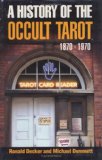
3. History of the Occult Tarot
, by Ronald Decker & Michael Dummett
Published in 2002, this continues where the previous book left off, and goes deeper into comparative occult symbolism from various individual authors, such as Arthur Edward Waite, Paul Foster Case, Aleister Crowley, Eden Gray; and various mystery schools, from the Hermetic Brotherhood of Luxor, the Hermetic order of the Golden Dawn, Builders of Adytum, and others.
Taken together, A Wicked Pack of Cards and A History of the Occult Tarot provide the basis for a solid education on this exoteric history of the tarot and how it became occulted.
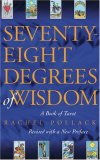
4. Seventy-Eight Degrees of Wisdom: A Book of Tarot
, by Rachel Pollack
Pollack looks at the cards from a variety of angles, describing their history, symbolism (esoteric and exoteric), kabbalistic and psychological, and compares and contrasts them to good effect. First published in 1980, the 1997 revised edition containing both the major arcana and minor arcana provides an updated history and her insights into the cards are generally good.
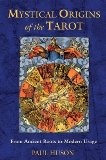
5. Mystical Origins of the Tarot: From Ancient Roots to Modern Usage
, by Paul Huson
Published in 2004, this is Huson’s most recent book on tarot (his first being The Devil’s Picturebook in 1971), and certainly his best to date. Tarot’s origins are revisited in some depth, accompanied by numerous line drawings to illustrate his points.
The history is good, symbolic interpretations are short, but he does well in comparing cartomantic interpretations from a variety of sources, such as Etteilla, Samuel Liddell MacGregor Mathers, the Golden Dawn, Arthur Edward Waite and others, as well as offering his own suggestions.
Agree, disagree? What would your top 5 be?
Save & Share: Del.icio.us Digg Facebook Stumble it! Tweet

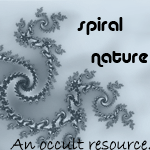
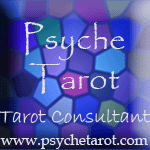
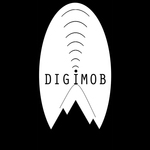
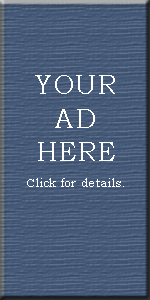
I’m no tarotist scholar, and I found Decker’s article in Gnosis (#46, Winter 1998) convincing and enlightening. However, I was left unconvinced that there was no connection to esoteric Egyptian tradition. Tony Bushby (“The Secret in the Bible”, Bushby’s poorest showing yet, IMO) suggests that 22 Hebrew characters were ‘occulted’ in the Egyptian Book of Thoth/God, and that ‘tarot’ is a plural form of Torah. We briefly discussed the roots of tarot at a VOMUG meeting, and my local tarot “guru” suggested that the esoteric roots stretch back to Egypt (or beyond) but the exoteric roots correspond with Decker’s history. I’ve personally got no dog in this fight, but Decker’s snarky tone doesn’t sway me and neither do grandiose, mythic claims of descent.
In your esteem, how do “The Tarot: History, Symbolism and Divination” by Robert Place, “Tarot Symbolism” by Robert O’Neill, or the works of Robert Wang fare?
Namaste.
I’ve heard of that article, however, as back issues of Gnosis are difficult to find I’ve not read it yet. Judging from Decker’s scholarship elsewhere, I’d expect good things.
I can say with confidence that there is no ancient Egyptian “Book of Thoth” relating to tarot or playing cards of any kind before the idea was invented by French occultists in the 1700s.
That there are twenty-two letters in the Hebrew alphabet and twenty-two trumps in many common tarot decks (but by no means all decks) is a coincidence, and nothing more. The suits, images on the cards, structure of the deck, etc. are all derived from essentially secular sources (unless you want to count the Persian decorative forms used in Mamluk decks from which European cards are derived, but I think that’d be stretching things a bit).
Certainly Christian imagery is used, alchemical references are made, as are the signs of the zodiac and elements in Minchiate decks, but these are cultural references, not intended to convey esoteric lore, merely things which any educated Italian man would understand from every day life.
The etymological roots of tarot are also straightforward, but I will make this the subject of another post as this is already getting quite long. : )
Actually, for the fifth book, I deliberated between Place’s and Huson’s, but ultimately went with Huson’s as it better illustrates the pictorial history of tarot, and tarot is primarily a visual medium, but yes, Place’s book is also quite good.
I haven’t read Tarot Symbolism, so I can’t comment on that, and of Robert Wang, I’ve only read An Introduction to the Golden Dawn Tarot, which is a decent introduction to the Golden Dawn’s tarot system, but a little silly when it comes to history. For Golden Dawn symbolism Liber T, or even Lon Milo DuQuette’s Understanding Aleister Crowley’s Thoth Tarot offer more (symbolic structure in Crowley’s deck borrows liberally from the Golden Dawn material he was taught, with some “corrections”).
The major phenomenon about the usage of tarot reading cards is to predict a persons future and discover their past and present issues. And mainly tarot card is used to predict events and eventually became of particular use to people who were interested in the occult.
Certainly that’s the case with modern decks, but for the first 300 years of tarot’s life it was simply another card game – and indeed, in many countries todays that remains its primary use.
[...] Ankh-f-n-khonsu commented: I’m no tarotist scholar, and I found Decker’s article in Gnosis (#46, Winter 1998) convincing and enlightening. However, I was left unconvinced that there was no connection to esoteric Egyptian tradition. Tony Bushby…suggests that 22 Hebrew characters were ‘occulted’ in the Egyptian Book of Thoth/God, and that ‘tarot’ is a plural form of Torah. [...] [...]